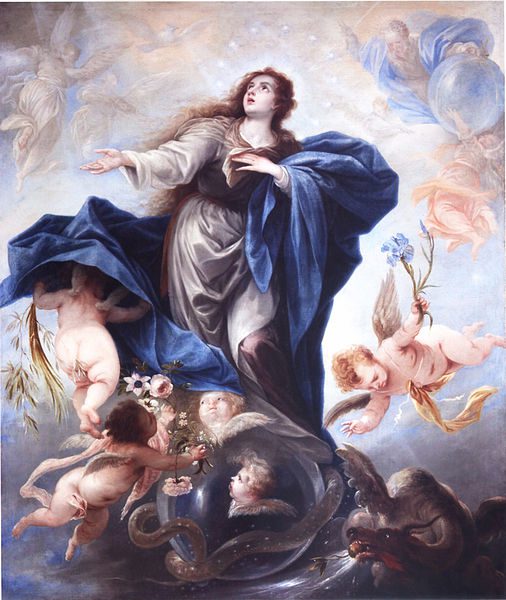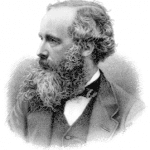
I wrote very extensively about the topic over seven years ago, and much of that research made it into my book about Martin Luther. Way back in 2003 I demonstrated how many Lutheran and other non-Catholic Luther scholars affirmed that Luther believed in Mary’s immaculate conception (in slightly modified form).Anyone interested in the fine (and many!) details can peruse my paper, but for my present purposes, here is a summary of what I found about what these scholars think:
[T]he following is a summary of the views of scholars on the subject of what Luther believed pertaining to the Immaculate Conception, in his later years (post-1528). I have not discovered a single scholar who treats this subject who denies that the early Luther believed in the Immaculate Conception in some form. The only dispute is over whether he later rejected his earlier views. I shall list the scholars from least convinced about the later Luther to most convinced: even to the point where it is thought his view was identical to that of the Catholic dogma proclaimed ex cathedra in 1854:
1. Hartmann Grisar (Catholic): Luther rejected the Immaculate Conception after 1528 or so.
2. Horst-Dietrich Preuss (Lutheran): Luther rejected the Immaculate Conception after 1528 or so.
3. Thomas A. O’Meara (C): later rejection “likely, but not certain.”
4. Hilda Graef (C): probably accepted, but in somewhat diluted form.
5. Arthur Carl Piepkorn (L): “life-long” accceptance “(barring two lapses).”
6. Walter Tappolet (C): accepted (yes).
7. Max Thurian (Reformed): yes.
8. William J. Cole (C): yes.
9. Eric W. Gritsch (L): yes.
10. Jaroslav Pelikan (L): yes.
11. Richard Marius (probably Protestant of some sort): yes.
12. 10 Catholic scholars on the Lutheran-Catholic Dialogue Committee (C): yes.
13. 11 Lutheran scholars on the Lutheran-Catholic Dialogue Committee (L): yes.
14. Reintraud Schimmelpfennig (C): yes, in the same sense as the infallible Catholic dogma proclaimed in 1854.
15. K. Algermissen (L): yes, in the same sense as the infallible Catholic dogma proclaimed in 1854.
16. Friedrich Heiler (L): yes, in the same sense as the infallible Catholic dogma proclaimed in 1854.
Total:
Yes: 31 (16 Lutherans, 13 Catholics, 1 Reformed, 1 probably Protestant [uncertain] )
Probably: 1 (Catholic)
Probably not: 1 (Catholic)
No: 2 (1 Catholic; 1 Lutheran)
That makes for an 89% rate of scholars of various religious persuasions who positively affirm that the later Luther believed in the Immaculate Conception. Only one Protestant scholar is firmly against the opinion, while two Catholic scholars are against and probably against (putting to rest the charge of denominational bias and special pleading). The Lutheran scholars can be, I think, fully trusted for the interpretation of the founder of their branch of Christianity. Catholic scholars are, then, only agreeing with the consensus of Lutheran scholarship on this point. I, therefore, rest my case . . .
Hartmann Grisar is one of a few scholars who believe that Luther ceased believing in Mary’s immaculate conception after 1527 or 1528, of at least of the 35 scholars I’ve run across who give any opinion at all. The only others I’ve found who agree with that opinion are Horst-Dietrich Preuss (Lutheran) and Thomas A. O’Meara (Catholic).
This was verified by the eminent Lutheran scholar Eric W. Gritsch, who studied for his doctorate under the famous Luther biographer Roland H. Bainton, and was a major translator of Luther’s Works in English (edited by Jaroslav Pelikan), including the lengthy treatise, Against the Roman Papacy: An Institution of the Devil (vol. 41, 263-376). He wrote:
Luther defended Mary’s perpetual virginity and regarded her Immaculate Conception as “a pious and pleasing thought” that should not, however, be imposed on the faithful.
(in The One Mediator, the Saints, and Mary, Lutherans and Catholics in Dialogue VIII, edited by H. George Anderson, J. Francis Stafford, Joseph A. Burgess, Minneapolis: Augsburg Fortress Press, 1992; 241)
In footnote 43 on page 382, he elaborated:
‘Haec pia cogitatio et placet.’ Exposition of the Ninth Chapter of Isaiah, 1543/44. WA 40/3:680.31-32. Two scholars doubt whether Luther affirmed the doctrine of the Immaculate Conception of Mary: Preuss (n. 11 above came to the conclusion that Luther rejected the doctrine after 1528; O’Meara states that “it is likely, but not certain” that Luther rejected the doctrine (118 [n. 11 above]). But Tappolet (32 [n. 1 above]) demonstrated with the use of texts that Luther did not change his mind. The literary evidence from Luther’s works clearly supports the view that Luther affirmed the doctrine, but did not consider it necessary to impose it.
Walter Tappolet is “the man” as far as documenting Luther’s Mariology. Gritsch writes about him on page 379:
An exhaustive collection of Luther’s statements on Mary has been offered by Walter Tappolet and Albert Ebneter (eds.), Das Marienlob der Reformatoren (Tubingen: Katzmann, 1962), 17-218, 357-64. Two studies have analyzed the chronological development of Luther’s views in conjunction with his basic theological views: Hans Dufel, Luthers Stellung zur Marienverehrung ( . . . 1968) and William J. Cole, “Was Luther a Devotee of Mary?” Marian Studies 21, (1970), 94-202) . . .
So Gritsch recommends Tappolet and notes that the latter’s opinion on Luther’s espousal of the Immaculate Conception was that he “did not change his mind.” He also cites the article by Cole that I have had in my library for many years, having copied it from the local Catholic seminary. Cole reaches the same conclusion as Tappolet:
It is noteworthy that Luther himself with considerable consistency down to the time of his death in 1546 accepted the Immaculate Conception of Mary.
. . . Luther’s final attitude can probably best be described by saying that he believed the truth of the Immaculate Conception himself, but did not find it formally and expressly taught in Scriptures.
(pp. 121, 123)
That’s only the tip of the iceberg of the many scholars’ views that I detailed seven years ago.
Addendum: shortly after I compiled this paper, I became persuaded that Luther did change his later view, to a position which I describe as “immaculate purification.” Briefly, the later Luther (sometime after 1527) thought that Mary was purified at the time of the birth or conception of Jesus, rather than at her own conception.
***
Meta Description: Many Lutheran scholars believed that Martin Luther accepted some form of the doctrine of the Immaculate Conception of Mary.
Meta Keywords: Blessed Virgin Mary, Catholic Mariology, Immaculate Conception, Immaculate purification, Luther and Mary, Luther’s Mariology, Lutheran Mariology, Marian doctrines, Mariology, Mary mother of Jesus, Mother of God, Theotokos, Virgin Mary













